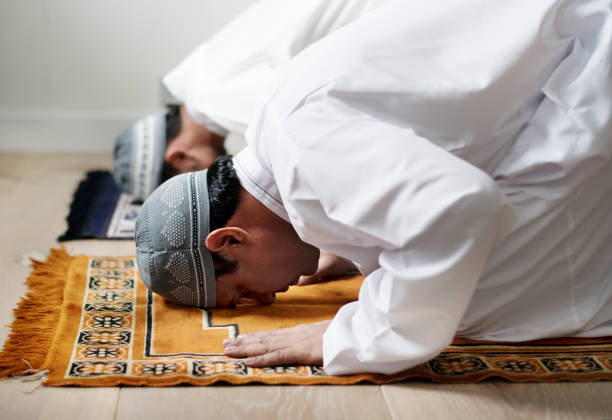The Importance of Salaah in Islam: A Path to Success

Introduction
In Islam, Salaah (prayer) holds a central and significant role. It is one of the five pillars of Islam and is obligatory for every Muslim. Salaah is not just a physical act of worship but a means of connecting with Allah and seeking His guidance and blessings. This blog post will delve into the importance of Salaah in Islam, outlining its key components and the times of Salaah.
The Importance of Salaah
Salaah is a fundamental aspect of a Muslim’s life, serving as a constant reminder of their purpose and relationship with Allah. It is an act of devotion and submission, demonstrating one’s commitment to their faith. The importance of Salaah can be understood through the following key aspects:
1. Spiritual Connection
Salaah provides a direct channel to communicate with Allah. It allows Muslims to establish a personal and intimate connection with their Creator, seeking His guidance, forgiveness, and blessings. Through Salaah, Muslims can find solace and tranquility, strengthening their faith and finding spiritual fulfillment.
2. Discipline and Self-control
Salaah requires Muslims to adhere to a specific routine, offering prayers at designated times throughout the day. This instills a sense of discipline, punctuality, and self-control. By performing Salaah regularly, Muslims learn to manage their time effectively and prioritize their spiritual obligations amidst their worldly responsibilities.
3. Purification of the Soul
Salaah serves as a means of purifying the soul and seeking forgiveness for sins. It allows Muslims to reflect upon their actions, seek repentance, and strive for self-improvement. The physical movements and recitation of Qur’anic verses during Salaah help in cultivating humility, gratitude, and mindfulness.
4. Unity and Community
Salaah is often performed in congregation, especially the obligatory prayers. This fosters a sense of unity, brotherhood, and community spirit among Muslims. It provides an opportunity to connect with fellow believers, strengthening social bonds and promoting a sense of belonging to the larger Muslim community.
Key Components of Salaah
Salaah consists of several essential components that are integral to its proper observance:
1. Niyyah (Intention)
Before starting Salaah, Muslims must have the intention to perform the specific prayer. The intention should be sincere and solely for the sake of Allah.
2. Takbeer (Opening Supplication)
Salaah begins with the Takbeer, where Muslims raise their hands and say “Allahu Akbar” (Allah is the Greatest), signifying the transition into the state of prayer.
3. Standing and Recitation
During Salaah, Muslims stand facing the Kaaba in Makkah, reciting verses from the Qur’an. This recitation can be done silently or aloud, depending on the type of prayer.
4. Rukoo’ (Bowing)
After reciting, Muslims bow down in Rukoo’, placing their hands on their knees and praising Allah in a specific supplication.
5. Sujood (Prostration)
Following the Rukoo’, Muslims prostrate themselves, placing their forehead, nose, hands, knees, and toes on the ground. This is done twice in each unit of prayer, and supplications are made to Allah in this position.
6. Tashahhud and Salaam
After completing the prescribed units of prayer, Muslims sit and recite the Tashahhud, a supplication praising Allah and seeking His blessings. The prayer concludes with the Salaam, turning the head to the right and left to greet the angels.
Times of Salaah
Salaah is performed at specific times throughout the day, which are determined by the position of the sun. The five daily prayers are:
1. Fajr
The pre-dawn prayer, performed before sunrise.
2. Dhuhr
The midday prayer, performed after the sun has passed its zenith.
3. Asr
The afternoon prayer, performed in the late afternoon.
4. Maghrib
The evening prayer, performed immediately after sunset.
5. Isha
The night prayer, performed after twilight has disappeared.
Each prayer has a specific time window during which it should be performed, and Muslims strive to fulfill this obligation to the best of their ability.
Come to Success through Salaah
Salaah is not merely a ritualistic practice but a transformative act of worship that brings immense benefits to the individual and the community. By establishing a regular Salaah routine, Muslims can experience spiritual growth, self-discipline, and a deeper connection with Allah. The importance of Salaah lies in its ability to guide and uplift individuals, leading them towards success in this world and the Hereafter.
As Muslims, let us embrace the significance of Salaah and strive to make it an integral part of our lives, reaping its countless rewards and blessings.
